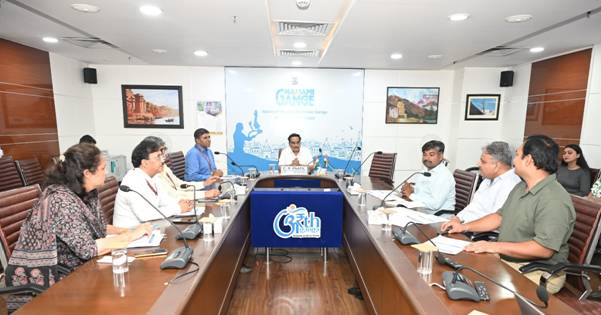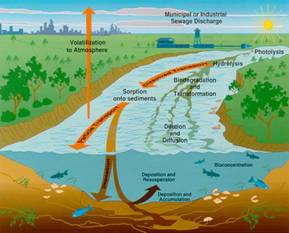Ministry of Jal Shakti
Union Minister of Jal Shakti Shri C.R. Patil chairs crucial meeting to ensure environmental flow of River Ganga and its tributaries
Shri C.R. Patil highlighted the need to evaluate the impact of the 2018 Environmental Flow Notification
Union Minister emphasised the need to assess whether the current e-flow framework needs improvement or augmentation to better safeguard the Yamuna River’s ecosystem
The National Mission for Clean Ganga has approved several studies to assess environmental flows in the Ganga basin
Shri C.R. Patil described this initiative as an inclusive and scientific approach to water management
Posted On:
24 JUL 2025 8:19PM by PIB Delhi
In a significant step towards sustainable river management, Union Jal Shakti Minister Shri C.R. Patil today led a comprehensive meeting focused on the environmental flow (e-flow) of the Ganga River and its tributaries. The discussions emphasized the need for coordinated efforts to ensure uninterrupted e-flow and enhance the overall health of the river eco systems.

Union Minister C.R. Patil’s Initiative and Guidelines:
Union Minister C.R. Patil highlighted the need to evaluate the impact of the 2018 Environmental Flow Notification. He stressed that a robust and holistic action plan must be developed to enhance water flow in rivers to preserve river ecosystems and ensure balanced use of water resources.
Special Focus on Yamuna River:
Shri C R Patil emphasised the need to assess whether the current e-flow framework needs improvement or augmentation to better safeguard the Yamuna River’s ecosystem. He called for concrete strategies and comprehensive plans to improve the water flow in Yamuna, especially in regions facing excessive water usage and pollution challenges.
Water Management and Ecological Balance:
Union Minister issued clear directions to expedite the assessment of all programs related to environmental flows. Timely evaluation of their effectiveness will help ensure that actions taken are aligned with the goal of preserving river ecosystems. He also called for strengthening decision-making processes to maintain ecological balance and improve water management systems.

Environmental Flow (E-Flow):
Environmental flow refers to the quantity, timing, and quality of water flow required to sustain freshwater ecosystems and the livelihoods that depend on them. It is critical for maintaining the ecological integrity of rivers and their estuaries. E-flow also ensures significant benefits for human welfare, especially in areas where water use is highly competitive and regulated.
However, in recent decades, extensive interventions in river flow—such as the construction of dams and barrages, pollution, and encroachments—have severely impacted the ecological balance of rivers. To address these issues, the concept of "Environmental Flow" has been introduced, emphasizing the need to maintain a minimum water flow to ensure the health of river ecosystems.
E-Flow studies consider the habitat and flow requirements of key fish species to ensure the survival of aquatic life and balanced river flow. This contributes to long-term ecological and economic benefits for society.
Stakeholder Participation & extensive Discussions during ongoing E-flow Studies
The National Mission for Clean Ganga (NMCG) has approved several studies to assess environmental flows in the Ganga basin. These include assessments by NIH Roorkee for Chambal, Son, and Damodar. IIT Roorkee has been tasked with assessing e-flows in the Ghaghara and Gomti sub-basins.IIT Kanpur has been given responsibility for assessing E flow in Kosi, Ganda, and Mahananda. Shri Paatil emphasised the need for extensive discussions with all the stakeholders during these studies so as to have more balanced outcomes
Inclusive Approach to Water Management:
Union Jal Shakti Minister described this initiative as an inclusive and scientific approach to water management, marking a significant step toward the protection of Indian river ecosystems and the sustainable use of water resources.
The meeting was attended Director General of the National Mission for Clean Ganga (NMCG) Shri Rajeev Kumar Mital, along with senior officials from NMCG, Central Water Commission (CWC), experts from National Institute of Hydrology (NIH),) and IIT Roorkee. The presence of key stakeholders ensured a comprehensive and multi-disciplinary discussion on the status, challenges, and way forward for effective implementation of environmental flow assessments across the Ganga basin.
***
MAM/SMP
(Release ID: 2148018)
Visitor Counter : 255